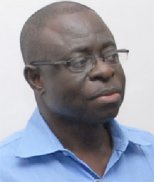Professor Emmanuel Gyimah-Boadi, Executive Director for the Centre for Democratic Development(CDD), has observed that Ghana’s political environment has become more competitive and polarised between the NPP and the NDC since the country found oil.
He said, "Our democracy was also a highly personalised state dominated by the Presidency and the Executive Branch and the ruling party."
This he said undermines checks and balances thus allowing the winner to take all and promotes “state capture” as the sole purpose of electoral competition.
Prof Gyimah-Boadi was delivering a lecture in Tamale on the topic: ‘Deepening Ghana’s democracy beyond elections’, as part of the CDD’s activities to deepen democracy, especially as the nation goes to the polls in December.
“Ghana is now classified as an electoral democracy, mainly on account of successful multi-party elections; a highly vibrant media and active civil society; substantially democratised civil-military relations, among others. While our elections are hardly problem free, even more formidable challenges lie beyond elections”, he observed.
Prof Gyimah-Boadi who is also a Lecturer at the University of Ghana said the emerging challenges in recent years include a new significant oil and gas sector generating State controlled revenue likely to put pressure on Ghana’s democratic institutions and legal and constitutional arrangements.
He noted that the challenges on the economic and social development front were the persistent inequality across the regions and between the sexes, high levels of unemployment, relatively high levels of deep poverty, while the public service had been rendered ineffective.
Prof Gyimah-Boadi said the economy must grow and expand while principal state election agencies such as the Electoral Commission, the judiciary; should be equipped with special election offence and dispute adjudication facilities.
Mr. Paul Osei-Kuffour, CDD-Ghana Programme Manager of the Northern Region, said CDD is a key stakeholder working in diverse ways towards the attainment of a functional democracy in Ghana, and has over the years contributed positively to the country’s democracy.
He said since the establishment of the Center in 1998, it had contributed to Ghana’s democratisation process through numerous research publications, advocacy work in the areas of institutional, legislative and policy reforms, press releases, conferences, seminars and roundtables.
He said CDD, a think-tank, intents to organise more lectures in the Northern parts to educate people about the democratic processes.**
Politics of Sunday, 24 June 2012
Source: GNA
Ghana’s oil find deepens political rivalry-CDD

















